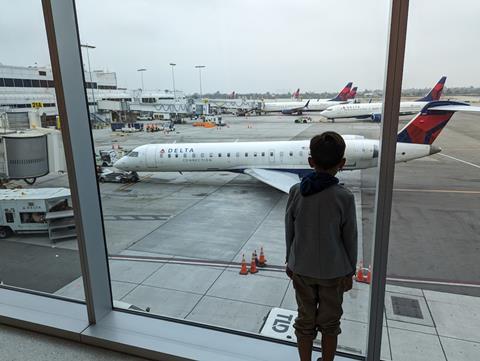Aviation’s push for net-zero emissions by 2050 was always going to be an uphill battle—thanks to hurdles around sustainable aviation fuel (SAF), battery technology, and hydrogen.
Even before Donald Trump returned to the White House doubts loomed about the industry’s ability to tame emissions, particularly with no major aircraft advancements on the cards from Airbus or Boeing, who will be stuck with their current offerings for years.

Donald Trump’s chaotic trade war will only make things worse. SAF production is an international effort, relying on a range of feedstocks and cross border cooperation. Will countries throw up trade barriers to shield their domestic SAF industries? This would have an impact on scale and, most important, on SAF prices.
Futuristic electric aircraft will need the world’s best battery technology, but for the time being the world’s best battery maker, China, is firmly in Trump’s cross hairs - although there are already signs the president may back down on the worst of his China trade threats. Electric and hydrogen aircraft will also depend on rare earth elements—prime targets for retaliatory tariffs and export controls.
Worse still, global efforts like CORSIA—the UN-backed carbon offsetting scheme for international flights—depend on cooperation between nations that may no longer be willing to play by the same rules.
Finally, trade wars will increase friction between countries. Negative sentiment will hinder politicians’ ability to work together on reducing aviation’s emissions.
The only silver lining – for the environment, not the industry – is that a poorer, more fractured world may slow, or even reverse, the growth of air travel. The most obvious solution to the industry’s emissions challenge is less flying, although it is heresy to suggest this view in industry circles.
In other environmental news, GKN Aerospace is reviewing its hydrogen efforts, as French airframer Daher continues to evaluate hydro-electric propulsion.
While Australia’s recent Avalon air show is best known for fighters burning tonnes of fuel in high-powered flying displays, Airbus and Boeing brought the environment discussion to the event. Airbus talked about SAF and Boeing promoted Cascade, a free on-line tool for calculating emissions.




















